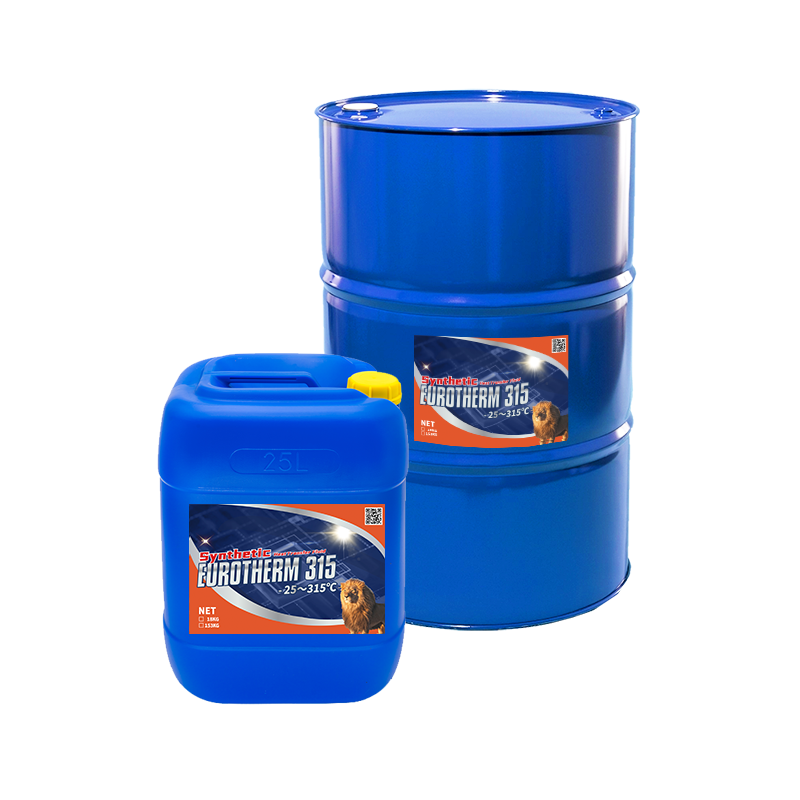Why Heat Transfer Liquid Is Necessary for Optimizing Power Transfer in Systems
The duty of warmth transfer liquids in enhancing energy transfer is crucial for attaining effective thermal administration across numerous commercial industries. These fluids assist in smooth warm exchange, ensuring procedures operate within ideal temperature ranges and minimizing the danger of overheating.

Duty in Thermal Monitoring
Warmth transfer liquids play an important function in thermal management by efficiently managing temperature levels in different industrial processes and systems. These specialized liquids assist in the transfer of warm between various elements, guaranteeing optimal operating problems and stopping overheating. By maintaining specific temperature level control, warm transfer liquids make it possible for markets such as chemical manufacturing, oil and gas, and power generation to run safely and efficiently.
The option of a proper warm transfer fluid relies on a number of elements, including thermal security, warm capacity, and viscosity. High thermal security makes sure that the fluid can withstand severe temperature levels without breaking down, while a high warm capacity allows it to soak up and release substantial quantities of warm - heat transfer fluid. Low thickness decreases the power required for pumping, adding to general system efficiency
In addition, warm transfer liquids are essential in applications like refrigeration, where they aid take in and dissipate warmth during the cooling cycle. In solar thermal power systems, these liquids capture and transportation solar heat to produce electrical power or give hot water. Their flexibility to diverse operating problems and ability to keep consistent thermal efficiency underscore their value in industrial thermal administration, facilitating functional connection and enhancing precaution.

Enhancing System Efficiency
To make the most of the benefits of thermal administration, enhancing system performance through the critical usage of heat transfer liquids is critical. These liquids play a vital duty in optimizing power transfer by helping with regular thermal guideline, which in turn influences the overall efficiency and longevity of systems. Effective heat transfer results in lessened energy losses, decreased operational costs, and enhanced reliability of equipment. By keeping optimum temperature levels, warmth transfer liquids aid guarantee that systems run within their made parameters, consequently protecting against overheating and decreasing the danger of element failing.

Kinds of Warmth Transfer Liquids
The diversity of heat transfer fluids highlights their important function in a series of commercial applications, each customized to meet specific thermal management requirements. find out this here These fluids facilitate efficient power transfer and are chosen based upon crucial residential properties such as thermal stability, viscosity, and warmth ability. The main types consist of water, glycol remedies, oils, and synthetics, each offering unique advantages.
Water is the most usual warm transfer medium as a result of its high certain warm capacity and affordable. Its usage is restricted by its freezing and steaming points. Glycol mixtures, usually utilized in a/c systems, offer a reduced freezing factor, including versatility in numerous climates. Mineral oils are preferred for their thermal stability and non-corrosive nature, making them additional info suitable for high-temperature applications.

These liquids make certain premium efficiency in systems where standard liquids may stop working. The choice of a heat transfer fluid is crucial, as it influences system efficiency, safety and security, and long life.
Environmental and Economic Conveniences
Making use of the appropriate warmth transfer fluids provides substantial environmental and economic benefits for commercial operations. By selecting fluids with premium thermal security and high warmth ability, sectors can enhance power effectiveness, causing minimized gas usage and lower greenhouse gas emissions. This adds to a smaller sized carbon footprint and aligns with international sustainability objectives. Ecologically friendly heat transfer liquids, usually biodegradable and safe, lessen the danger of soil and water contamination in the occasion of leakages or spills, thus protecting ecosystems and abiding by rigorous ecological view publisher site guidelines.
Economically, the right warm transfer fluid can considerably lower functional prices. Effective heat transfer lowers energy expense, bring about lower energy bills and enhanced productivity. Moreover, fluids with extensive lifecycle performance decrease the regularity of replacements and maintenance, lowering downtime and associated expenses. Purchasing high-grade fluids can likewise alleviate the risk of equipment rust and failing, staying clear of expensive repair services and expanding the lifespan of essential infrastructure. In competitive markets, these cost savings and performances give a distinctive benefit, permitting firms to allot sources better and buy more technology. On the whole, the critical usage of ideal warm transfer fluids supports sustainable financial development and ecological stewardship.
Picking the Right Fluid
Just how does one navigate the complex procedure of choosing the right warm transfer fluid for commercial applications? Selecting the ideal fluid is essential, as it straight influences system effectiveness, safety, and functional costs. Secret factors to consider include thermal security, compatibility with system materials, and operating temperature level variety. Thermal security ensures the liquid can endure high temperature levels without deteriorating, while compatibility prevents deterioration or other destructive reactions with system parts. The operating temperature array must straighten with the system's requirements to keep performance and durability - heat transfer fluid.
Additionally, the fluid's heat capacity and viscosity are vital. A high warm ability permits the liquid to soak up and transfer more energy, enhancing efficiency. Ideal viscosity guarantees very little pump work and effective heat transfer, especially in varying temperature levels. Environmental and safety and security facets need to additionally become part of the decision-making procedure. Safe, naturally degradable fluids decrease environmental impact and follow regulatory standards, minimizing liability threats.
Conclusion
The calculated selection and application of warm transfer liquids are essential to optimizing energy transfer throughout various systems. By making sure high thermal stability and capability, these liquids provide specific temperature control and improve total system efficiency.
Comments on “How Heat Transfer Fluid Effects the Effectiveness of A/c Solutions”